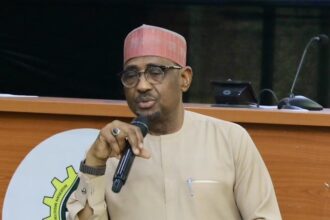-
NBS data shows ₦2.3trn spent in Q2 alone
-
Analysts fear 2025 may surpass ₦15.4trn of 2024
-
Experts push government to back local refining
Nigeria’s fuel imports, Dangote Refinery, and NBS fuel data have converged into a troubling reality as the country spent ₦4 trillion on imported refined products in the first half of 2025, exposing the nation’s continued vulnerability in its downstream sector.
Figures released by the National Bureau of Statistics revealed that Nigeria incurred ₦2.3 trillion in fuel import bills in the second quarter, following ₦1.76 trillion in the first quarter.
ATTENTION: Click “HERE” to join our WhatsApp group and receive News updates directly on your WhatsApp!
At the current exchange rate of ₦1,550 to a dollar, the total amounts to $2.58 billion spent on imported fuel in just six months.
READ ALSO:Fuel Subsidy Savings Inadequate for Nigeria’s $50bn Budget – Taiwo Oyedele
For perspective, the nation’s full-year import bill in 2024 was ₦15.4 trillion, a weight that destabilised foreign reserves and battered the naira.
Experts warn that if the present trajectory holds, the 2025 tally could meet or even surpass last year’s record.
Petrol emerged as Nigeria’s most dominant import from ECOWAS countries, valued at ₦208.76 billion in the second quarter.
It was equally listed among the nation’s top five imports, alongside wheat, gas oil, crude petroleum oils, and cane sugar — a ranking that reinforces how energy continues to overshadow the country’s external trade profile.
Speaking to newsmen, Chief Executive of the Centre for Promotion of Private Enterprise, Dr Muda Yusuf, said the data reflected structural weaknesses in the refining landscape.
“The data speaks for itself. It shows that we are still importing. Our commitment to complete domestication of our refining capacity and to complete import substitution is not yet total. It is an indication that there are still forces within the economy that are still bent on importation [of fuel]. Not everyone is happy with the fact that we want to produce locally. What I think the government should do is come up with appropriate fiscal policy to curb importation of fuel. Now that we have domestic capacity coming Dangote Refinery or any other refinery, there is … we need to promote backward integration,” he stated.
Other analysts noted that the ₦4 trillion expended in two quarters highlights how slowly reforms are moving, insisting that without steady domestic refining, Nigeria will remain tethered to foreign suppliers.
Beyond the import bill, the data revealed that Nigeria, for the first time, imported more crude oil from the United States than it exported earlier this year.
The reversal was attributed to operational changes in domestic refining and rising crude uptake by the Dangote Refinery, which began processing in January 2024 and is pushing to reach 650,000 barrels per day later this year.
Economists argue that unless refining capacity is quickly scaled, Nigeria will continue to bleed foreign exchange, struggle with currency volatility, and risk deeper exposure to global oil market shocks.


